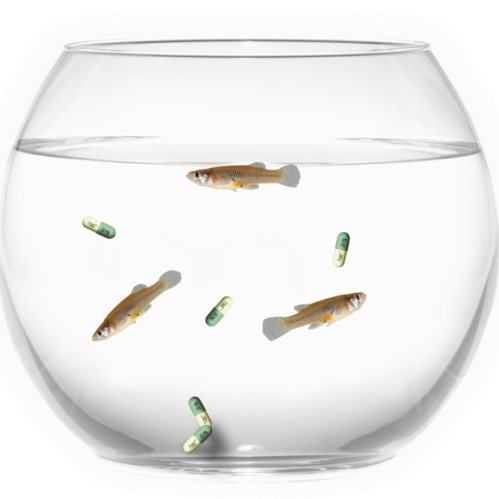Chilled-out fish: antidepressants in waterways have toxic effect on animal behaviour
🔗 [SYSTEM UPDATE] Link found. Timestamp incremented on 2025-11-26 13:55:13.Medications are finding their way into our waterways, and Monash University researchers have discovered one antidepressant is having a profound impact on fish. DAVID McALPINE reports.

LISTEN: Associate Professor Bob Wong warns of the dangers of prescription medications finding their way into our waterways and affecting fish and other animals.
By DAVID McALPINE,
science editor
Monash University researchers have linked behavioural changes in fish with aquatic pollution from the antidepressant fluoxetine, sold as Prozac.

The change left the fish more vulnerable to predators, the research found.
Associate Professor Bob Wong, deputy head of the School of Biological Sciences at Monash University, leads a team of researchers investigating animal reproductive behaviour and the impacts of environmental change on behaviour and evolution.
Medications excreted by humans are flushed into the sewerage network, with many bypassing wastewater treatment and flowing into rivers and bays.
About 600 of 5000 commonly prescribed pharmaceuticals are found in waterways worldwide, Dr Wong said.
“A lot of these medications end up in the environment and we know they can have profound impacts,” he said.
A recent publication by PhD student Jake Martin showed a link in mosquitofish between lessened responses to predators and exposure to the widely prescribed antidepressant fluoxetine, marketed as Prozac.

When Mr Martin exposed fish to the drug at realistic pollutant levels, the animals were less likely to adjust their activity in the presence of a predator or after an unsuccessful predator strike.
“This is likely to make them more vulnerable to predation, whereby if they are missed by the first strike, they are more vulnerable and more likely to be detected for a second strike,” Mr Martin said.
Dr Wong said researchers are only beginning to understand the impacts of pharmaceutical waste on evolution.
“By influencing reproductive behaviour, you can affect the number and the quality of offspring that are produced, which can then have important consequences for the health of populations and also the survival of species,” he said.

“At the moment, it’s not an issue which has captured enough attention. I don’t think it’s getting the attention from regulators as I think it deserves.”
“When we are potentially using wastewater to water our lawns, when we’re potentially talking about recycling water for human use, it does raise these kinds of alarming concerns about are we exposing ourselves unnecessarily to pharmaceutical pollutants and are we exposing our wildlife unnecessarily to pharmaceutical pollutants?”
The Wong group is now monitoring populations of fish exposed to fluoxetine over a longer period, to investigate the long-term effects of antidepressant exposure.
“I think that is really a key next step, which is to look at what are the longer terms impacts that exposure could have on wildlife,” Dr Wong said.
“We want to see what impacts long-term exposure might have on these fish across multiple generations, so we’ll be looking at their behaviour, we’ll also be looking at various morphological traits, such as the colours of the males and various other things, to see what effects could occur across generations.”





